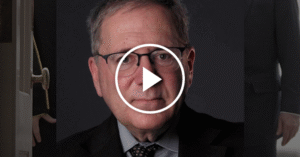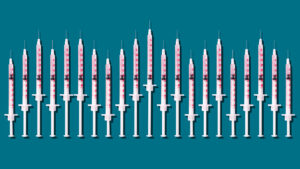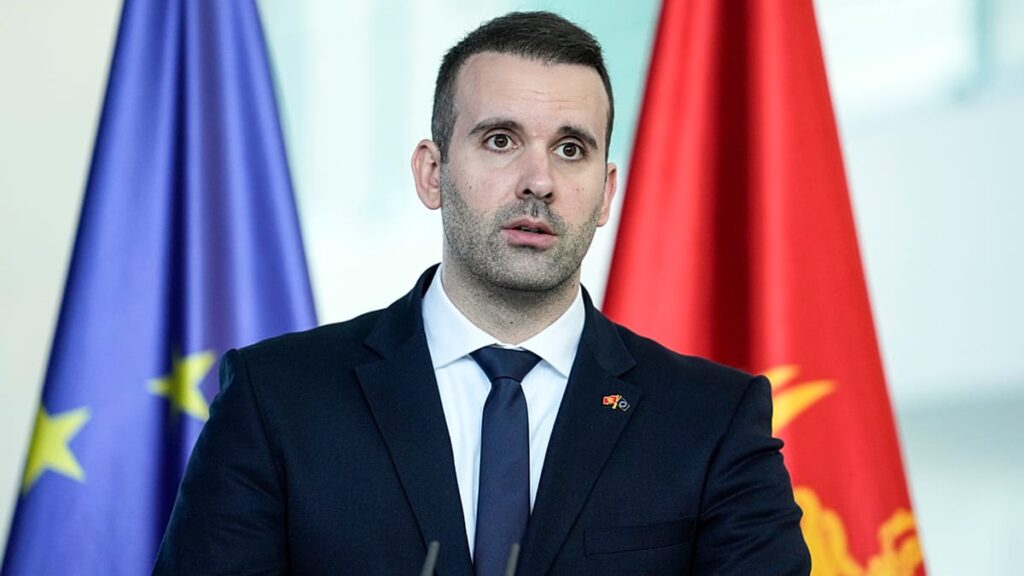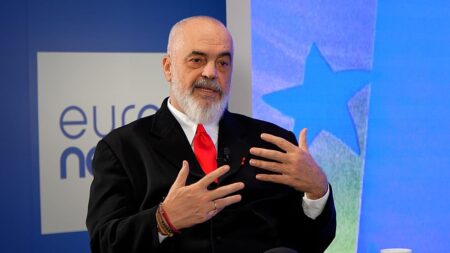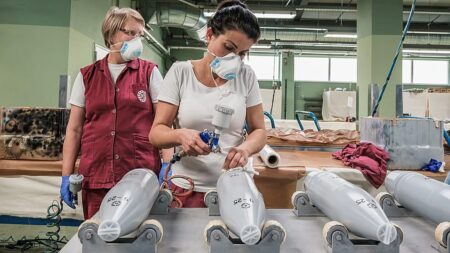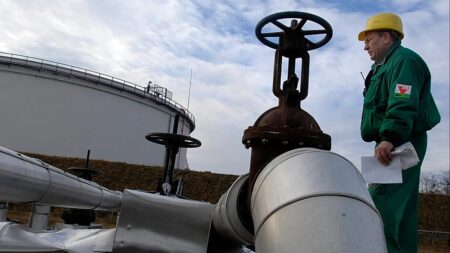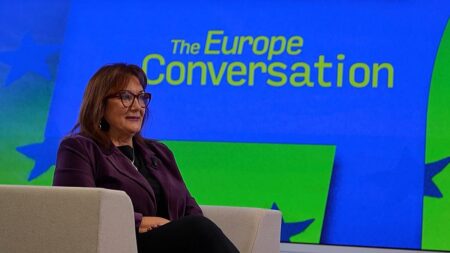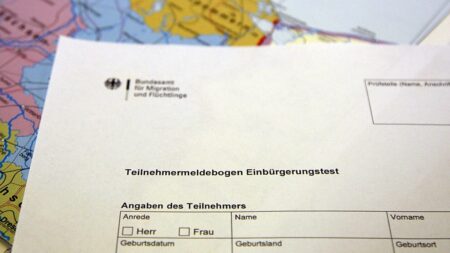For Montenegro, there is no alternative to full membership to the European Union, Montenegrin Prime Minister Milojko Spajić told Euronews in a wide-ranging interview.
“Nobody is even thinking of alternatives. The full membership of the European Union is what we are gunning for,” he said, speaking in the wake of the EU Enlargement Forum organised by the European Commission in Brussels on Tuesday, 18 November.
Montenegro is the smallest of the nine EU candidate countries, with just over 620,000 residents. It is currently the most advanced in implementing the constitutional, judicial and economic reforms required for Brussels to consider a country ready to join the EU.
Its leadership is hopeful the country will become the EU’s 28th member by 2028, a goal that Montenegro is “on track” to meet,the European Commission said in its latest enlargement report.
Spajić said hebelieves his country’s accession to the EU is “only fair,” adding, “we are a country surrounded by the European Union,” he said.
He pointed to the fact that Montenegro officially became part of the Single Euro Payments Area (SEPA) in October of this year. Montenegro unilaterally adopted the euro as its de facto currency in 2002, but for more than two decades, payments travelled through costly and fragmented channels.
Now, it has joined Europe’s payment infrastructure in full, putting an end to this system.
Additionally, freemobile phone roamingbetween Montenegro and the EU is set to begin in 2026.
“So we are integrating into the single market to an extent unseen until now, but also with the political EU,” said Spajić. “This is our goal. We are gunning for closing all the chapters by the end of next year.”
Visa-free travel
One matter on which Montenegro is not yet fully aligned with the EU’s approach is travel restrictions on Russians. Earlier this month, the bloc announced stricter visa rules for Russian citizens to enhance security following hybrid drone attacks attributed to Russia.
Russian nationals will no longer be eligible for multiple-entry visas to the EU. Instead, they will receive single-entry visas only, requiring them to make a new application for each visit.
On the other hand, Russian citizens can travel to Montenegro visa-free for up to 30 days with a valid passport. This is reflected in tourism statistics: figures published by the Montenegro Statistical Office, Monstat, showed Russians accounted for almost one-fifth (18.3%) of overnight stays in 2024.
However, Spajić said Russian tourists are not as numerous as they used to be, adding that the same is true when it comes to Russian real estate holdings in Montenegro.
“Some 15 to 20 years ago, it was way higher. It’s much more diversified now, and you know, we are not too worried about the trends.”
Spajić noted Montenegro fully follows the EU’s Common Foreign and Security Policy (CFSP) — a key requirement for EU membership — including on this matter. The CFSP is the EU’s framework for coordinating foreign policy and security actions, which includes the bloc’s sanctions against Russia, among others.
“This alignment has been the case not only under the current government; it’s been like this for the last five governments, for 13 years,” he said. “Even before having membership status and membership benefits, we behave as a member state.”
Spajić added that while tourism is important to Montenegro’s economy, the country will “very soon fully align with the visa policies of the EU”, which is a condition for joining the bloc.
In a bid to comply with this criterion, the country in October cancelled its visa-free programmes for citizens of Armenia, Uzbekistan, Kuwait and Egypt.
The full interview with Milojko Spajić will air on Euronews on Thursday, 20 November at 20:30 CET.
Read the full article here



